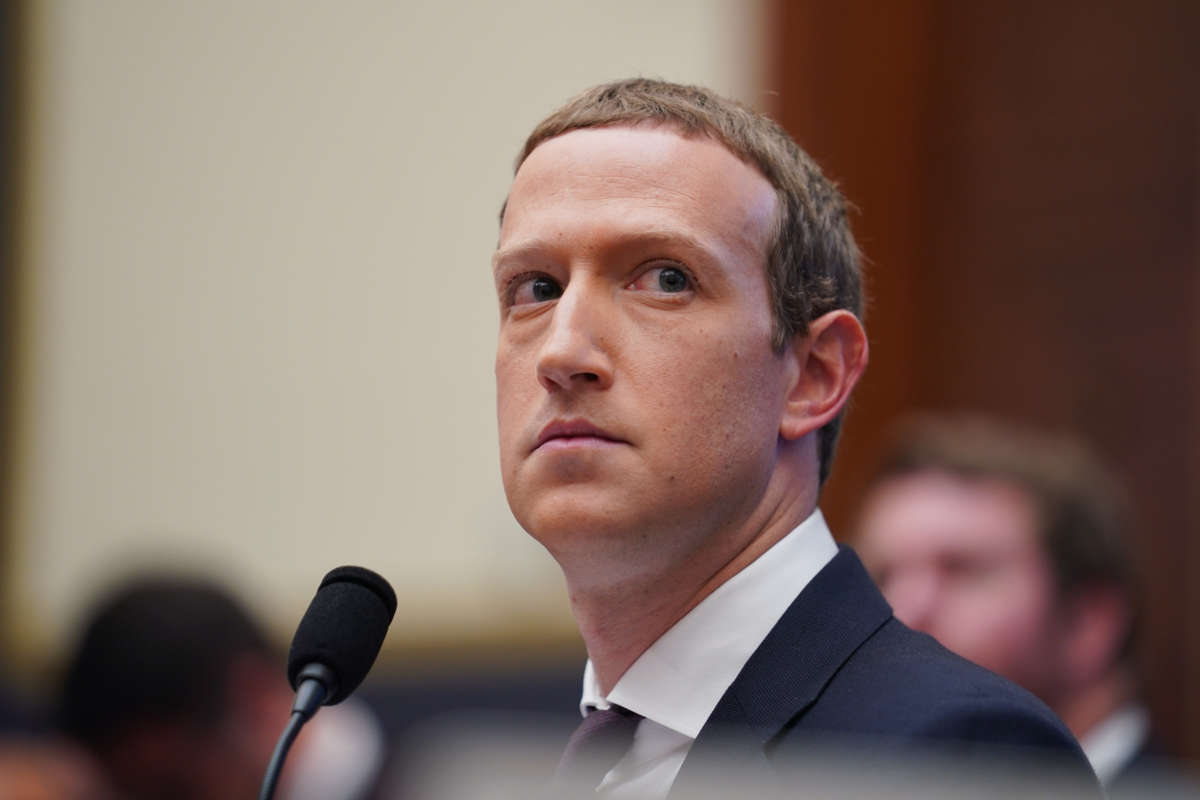Will Facebook run ads calling Donald Trump a “money launderer?” This is an interesting question to consider. If an individual or group proposed to run television or newspaper ads describing Trump as a money launderer, the outlet would almost certainly refuse to take it. In spite of the strong probability that the charge is true, these outlets would be afraid of a major lawsuit from Trump. Facebook has no such concerns, and that is a big problem.
Facebook founder and CEO Mark Zuckerberg has made a big point of saying that Facebook will not screen political ads for truthfulness. This means that, in principle, anyone could say pretty much anything about anyone in Facebook ads. Zuckerberg can’t shield people from liability for their own actions, but Facebook does not have to worry about being sued for spreading libelous claims in the same way that a television station or newspaper does.
Unlike television stations and newspapers, Facebook is treated as a common carrier. This means it is treated like a phone company, an internet service provider or the mail system. A common carrier, in principle, has no control over the content of the material that it carries and does not profit from the content, except insofar as it increases the use of its service. (Interesting gossip may lead people to make more phone calls.)
That story does not at all describe Facebook. Facebook very directly makes money from content. It sells advertising and sells personal information about its users. It also allows pages to increase the visibility of a post by paying additional fees. In this way, Facebook looks far more like a television station or newspaper than a phone company.
Facebook is exempt from liability for its content due to a provision of the 1996 Communications Decency Act (Section 230). This provision arguably made sense in the early days of the internet, when many web intermediaries were acting largely like a phone company. They were linking up individuals and passing along content.
Many intermediaries still do this. For example, tens of millions of people use bulletin boards, email lists or chat groups where they share information among themselves. The host does not profit from the content; it profits by charging a fee for the service.
However, Facebook and many other internet services do not come close to fitting this description. There is no more reason to exempt Facebook from our libel laws than CBS or The New York Times. It very explicitly profits from the content its users provide.
In his defense, Zuckerberg has said that he does not want to be in the position of deciding what is true and what isn’t. CBS and The New York Times probably also would rather not be in that position, but it comes with the turf. If Zuckerberg thinks the problem is too hard for him to deal with, then he should step down from his position with Facebook and allow a more competent person to take his place.
One of the advantages of holding Facebook liable for false content, as opposed to a broadcast or print outlet, is that we can ensure that all the people who saw the original lie will also be exposed to the correction. This is not the case with broadcast or print.
In the case of calling Trump a money launderer on Facebook, if he can convince a court that the claim is, in fact, libelous, Facebook knows all the people who opened the original post and can ensure that a correction is sent to every single person. It can even ensure that people who passed on the libelous post on their own Facebook pages also pass on the correction since it can make this a requirement that appears in its terms of service.
While it would be an impossible burden to preemptively screen every ad and Facebook page for libelous material, it would not be impossible to make Facebook responsible for investigating allegations after they have been brought to their attention. Imposing such a requirement would hugely increase Facebook’s costs, but why should society be forced to bear the cost of false claims being spread through Facebook? We don’t find it acceptable when CBS or The New York Times spread false claims; on what basis should Facebook be different?
Last week, George Soros had a New York Times column saying Zuckerberg should not be running Facebook. Soros focused on the close relationship that Zuckerberg has established with Trump.
While Soros raises real concerns, the point is not that Zuckerberg is personally trying to maximize Facebook’s profits by corrupting our democracy; the problem is that the laws allow it. Making Facebook subject to the same libel law as other news outlets would radically reduce this risk. That will make Facebook much less profitable, and Mark Zuckerberg much less rich, but who gives a damn?
Trump is silencing political dissent. We appeal for your support.
Progressive nonprofits are the latest target caught in Trump’s crosshairs. With the aim of eliminating political opposition, Trump and his sycophants are working to curb government funding, constrain private foundations, and even cut tax-exempt status from organizations he dislikes.
We’re concerned, because Truthout is not immune to such bad-faith attacks.
We can only resist Trump’s attacks by cultivating a strong base of support. The right-wing mediasphere is funded comfortably by billionaire owners and venture capitalist philanthropists. At Truthout, we have you.
We’re in the midst of a fundraiser, and as of right now, we have until midnight to raise $10,000. Please take a meaningful action in the fight against authoritarianism: make a one-time or monthly donation to Truthout. If you have the means, please dig deep.
